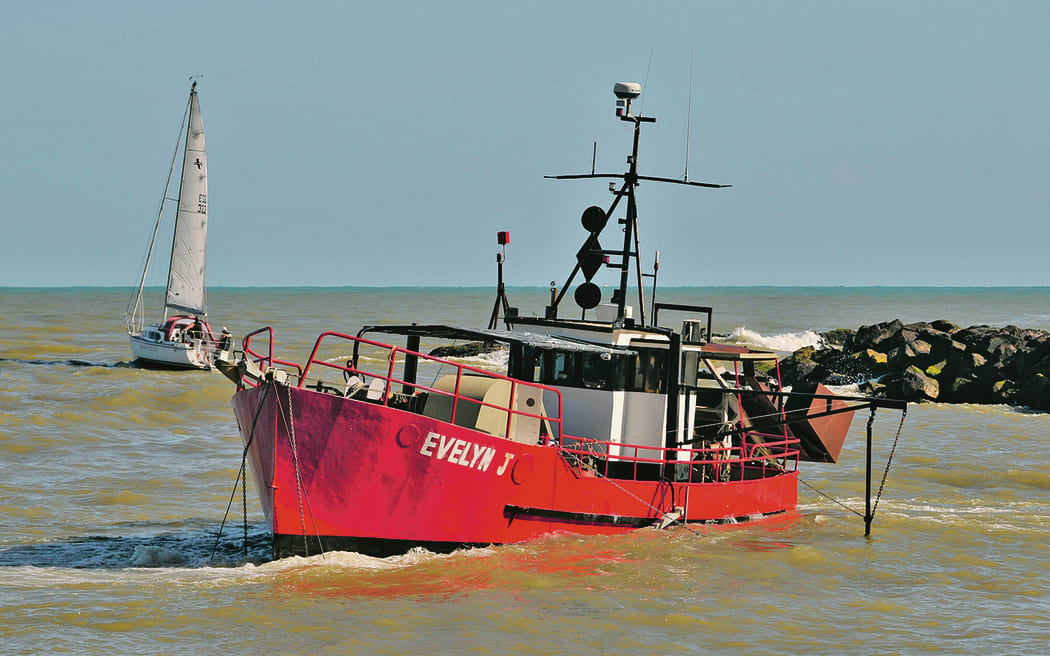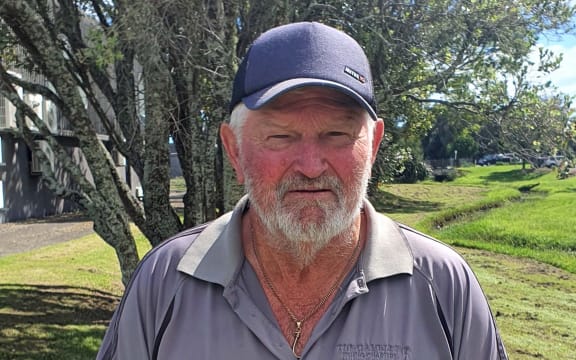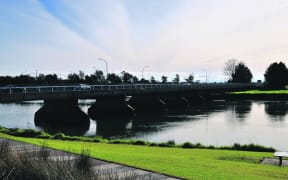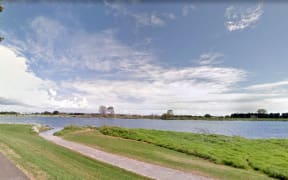
Whakatāne District Council's dredge boat the Evelyn J is working in the narrows over coming weeks to help keep the bar workable. Photo: Supplied
Boaties using the Whakatāne River entrance will be relieved that dredging has started on the narrows, where the shallow water has been causing concern.
The narrows is the part of the river where boats pass between Turuturu Rock (statue of Wairaka) and the eastern wall, in the Bay of Plenty.
The shallowing of the narrows has been causing some challenges, particularly for deeper draft boats using the Whakatāne River entrance over recent weeks.
Mick Goodin, who has been operating a charter fishing service out of Whakatāne harbour for over 20 years, says it was the shallowest he had seen it.

"We've got quite a big problem down there at the moment," he said.
Even one of Whakatōhea Mussels' boats that use the river entrance, and has a relatively shallow draft, has had difficulty at times.
Whakatōhea Mussels chief executive Peter Vitosovich said although there had not been an incident as such, there had been one occasion when one of the boats started to make its way into the river entrance before instrumentation showed it was too shallow.
"The boys saw it was too shallow, so they stopped and reversed out again and waited until the tide rose," he said.

Mick Goodin. Photo: LDR / Diane McCarthy
Coastguard Whakatāne president Jim Williamson said although they had not had to rescue anyone yet, he had heard through word of mouth of one incident in which a boat ended up on the rocks but another boat pulled them off.
"It is a concern to everybody," he said.
Bay of Plenty harbourmaster Jon Peters said the regional council's maritime team had not received an accident or incident notification of any vessel getting stuck on the Whakatāne River.
"Aside from it being a legal responsibility for skippers to report any maritime incidents or accidents to the harbourmaster and Maritime New Zealand immediately, it helps to ensure that navigational safety threats can be managed effectively by the team," he said.
Whakatāne District Council ports, harbours and airport team leader Mark Read said dredging work on the narrows had begun on Tuesday morning.
He said the council met with Bay of Plenty Regional Council and the harbourmaster to discuss the commencement of contingency dredging.
"A lack of significant rainfall has seen the area the shallowest depth it has been in more than a decade. For the safety of boat users, we are doing our best to mitigate this issue."
The work will be ongoing for weeks, and dredging will occur on the outgoing tide only, between 7am to 7pm weekdays, excluding public holidays.
It will continue until a depth is reached that is safe.
Read said the bar would remain open unless conditions deemed otherwise.
Goodin felt the shallowing problem was partly due to too much sand being allowed to build up on Piripai spit due to westerly winds and lack of any big rain events this year.
He said, historically, when sand built up on the spit, the district council would take a bulldozer out there and remove some of the sand.
"This meant that when sand was shaved off by the outgoing tide, there wasn't the same volume of it as there is now," he said.
"It's got that bad that it's going to be a major job to move the sand now."
Regional council engineering manager Mark Townsend said the spit level was actively maintained in accordance with the requirements of the district council's resource consent.
"The regional council flood team undertakes a monthly survey of the spit and will advise the district council if attention is required," he said.
He said spit lowering had been undertaken twice in the past 18 months.
"Actively maintaining the spit is a requirement for flood protection. It is regularly lowered so that it can be better eroded by river flow and increase the overall capacity at the river mouth, to reduce the risk of small-scale, nuisance flooding."
LDR is local body journalism co-funded by RNZ and NZ On Air.




